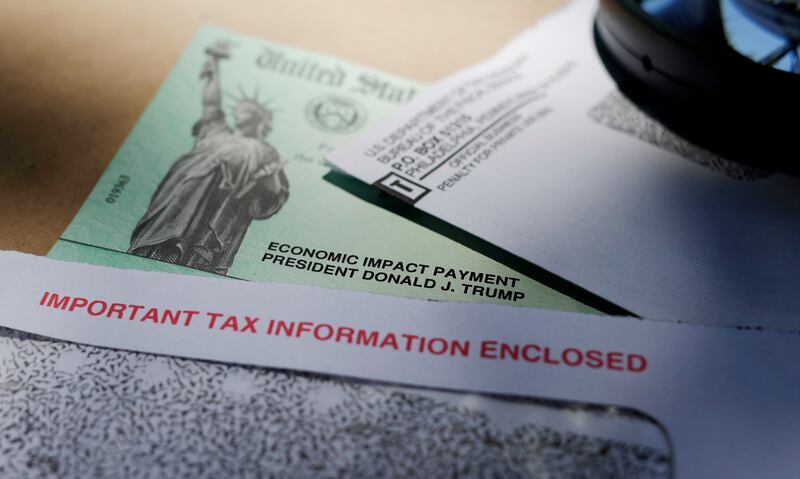Economic news last week made two things clear: Americans will need more financial help as they weather the pandemic, and a repeat of the first round of stimulus aid would be a blunder.
States are experiencing some of the highest spikes of COVID-19 infections since the beginning of spring. Utah paused its recovery plan, and others have since joined.
Meanwhile, unemployment claims have hardly moved in the past three weeks, with roughly 1.5 million Americans filing new claims each week in June. That’s lower than the peak in late March, but it far exceeds the pre-pandemic average and could indicate economic recovery is stalling.
Then came news last week that the IRS bungled its stimulus check rollout as part of the CARES Act. The agency reportedly sent $1.4 billion to deceased individuals. It has also requested that money inadvertently sent to inmates and unauthorized immigrants be returned. Another report surfaced earlier this year of a wealthy woman in the U.K. receiving a check. And still some 35 million eligible Americans haven’t received the first payment.
President Trump indicated last week he was open to a new stimulus package, and Congress is reportedly mulling a vote on emergency aid next month. Americans need help, and direct financial assistance to people and small businesses is likely the best way to do that, but whatever plan materializes in Congress must be smarter and more targeted than the first.
House Democrats are on board for a second wave of checks; direct payments to Americans is a major facet of their $3 trillion package, dubbed the HEROES Act, which passed the chamber in May. The bill would expand the eligibility of recipients to include college and high school students and some residents who aren’t U.S. citizens, offering a $1,200 check for each adult and each dependent.
But some GOP officials have shown wariness in more government assistance, especially with national debt already at an all-time high. Since the CARES Act passed in late March, the national deficit has increased by $1 trillion and the federal debt is approaching $26 trillion.
It is possible to both aid the country and keep emergency spending within appropriate limits. Rethinking how — and to whom — the government distributes funds would be a necessary first step. Those conversations seem to already be occurring, as Larry Kudlow, director of the White House National Economic council, recently told the Washington Post they “would want to target those folks who lost their jobs and are most in need.”
Some Republicans have floated ideas of tax credits, travel assistance and payroll tax cuts. Sen. Rob Portman of Ohio has proposed a return-to-work bonus that would pay out money once an unemployed person or furloughed employee returns to work.
All those ideas deserve ample vetting and scrutiny. The goal should be to find the right amount of assistance for the population that needs it the most. It should not be to rush a program through without adequate safeguards or an acknowledgement of a mountainous debt.

